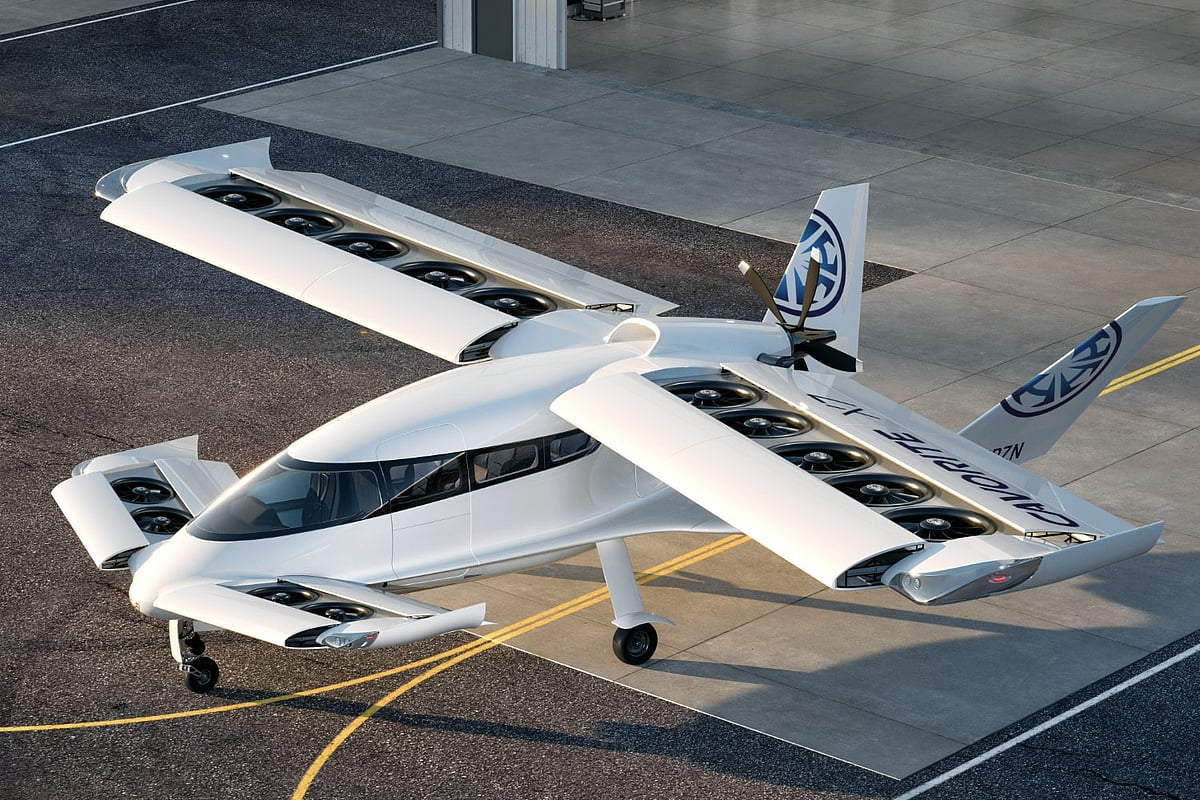Air taxi developer Horizon has landed a crucial deal, signing on to buy the famed PT6A engine from Pratt & Whitney Canada for its "Cavorite X7" hybrid-electric vertical takeoff and landing (eVTOL) aircraft.
The Cavorite X7, designed from the ground-up as a hybrid, is no ordinary eVTOL.
The October 14, 2025 announcement involves Horizon Aircraft's purchase agreement with Pratt & Whitney Canada for its battle-tested PT6A turboprop engine, and marks a pivotal milestone for the Cavorite X7.
Why is this a big deal?
The deal propels Horizon closer to ramping up production at its Lindsay, Ontario facility.
This will help the a Canadian startup toward certification and production of a versatile, efficient platform for its advanced air mobility (AAM).
Turboprop + electric engines
The PT6A engine, a staple in turboprop aviation known for its reliability and efficiency, is set to supercharge the Cavorite X7 with unmatched operational flexibility.
This hybrid powerplant boosts range and performance well beyond what fully electric eVTOLs offer.
Designed as regional aircraft, instead of a rooftop-to-rooftop "air taxi", The Cavorite X7 will primarily take flight as a conventional fixed-wing aircraft during most phases, with its hybrid gas-electric system designed to slash dependency on scarce battery charging infrastructure — especially vital for remote and regional operations.
Brian Robinson, Horizon co-founder and chief engineer, said their choice of the battle-tested PT6A engine was made due to its excellent safety record: "We're out to build the safest plane in the world."
Besides the engine's safety record (60 years of service, 52,000 units produced) and use in all sorts of environments, Robinson also said its wide availability means working an easy-to-maintain platform.
Reverse-flow design
Its modular reverse-flow design simplifies installation and maintenance, reducing downtime and operational risks—critical for eVTOL adoption in commercial fleets.
Pratt & Whitney Canada executives highlight this as essential for "next-generation aircraft," ensuring Horizon's hybrid system can handle real-world missions without the uncertainties of unproven tech.
Moreover, with the PT6A, the Cavorite X7 could achieve cruise speeds up to 450 km/h, a 800 km range, and capacity for 7 passengers or 1,500 lbs of payload — outpacing many pure-electric eVTOLs limited by battery constraints.
The hybrid setup allows efficient vertical takeoff followed by fuel-efficient forward flight, positioning it as a "faster, farther, and most efficient" option in the industry.
This versatility expands eVTOL applications from urban shuttles to regional cargo, accelerating market penetration.
Testing, certification
Horizon Aircraft revealed it aims to complete testing and certification "soon", gearing up to meet growing market demand.
Their focus: safety, utility, and high performance targeting regional operators, emergency services, and defense sectors.
This landmark deal underscores the rising influence of Canadian aerospace innovators in the global advanced air mobility revolution.
The company also projects the PT6A-powered Cavorite X7 will emit up to 30% less hydrocarbon pollutants compared to traditional aircraft — a win for both the skies and the environment.
'Game-changer'
The choice of this engine marks a turning point for hybrid-electric aviation — combining the reliability of one of aviation’s most proven engines with the innovation of next-generation vertical flight.
The PT6A, trusted in over 160 aircraft types and logging more than 500 million flight hours, gives Horizon’s design the muscle to fly faster, farther, and more efficiently than fully electric competitors.
The PT6A’s hybrid integration could reshape the industry, extend range, and overcome charging infrastructure limits that still hold many eVTOLs back.
From Canada’s growing influence in the advanced air mobility (AAM) sector to Horizon’s mission-first engineering philosophy, the deal could mean a whole new dynamics for advanced air mobility and the race toward real-world hybrid flight.
Sign up for the Daily Briefing
Get the latest news and updates straight to your inbox
Network Links
GN StoreDownload our app
© Al Nisr Publishing LLC 2025. All rights reserved.
